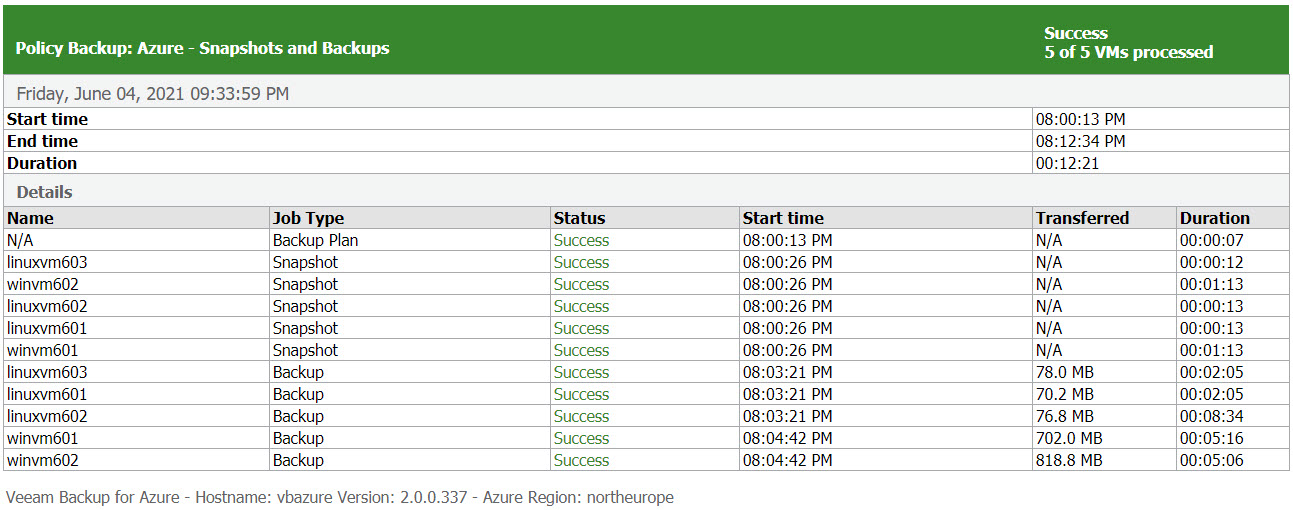

Only the blocks differing from the other full backups already in the chain are stored. Just to recap: spaceless full backups means that the full backups automatically generated in your backup-copy chain because of switching on GFS for the job do not take the full space on the disk needed for the VBK file. But relax – in the many installations I take care of and in our own Veeam cloud provider repository ReFS runs as expected and without issues. And if you want to shiver – read the full forum thread on the problems with ReFS repositories some people had to face in the beginning. You can get the latest on it in the Veeam forum thread on this: Īs you can tell from the URL: don’t use 4k block-sizes with your ReFS repos. This is because of issues with another patch in the rollup and it will be available again later. So make sure to install this patch if you don’t want to run into performance or stability issues: Ĭurrently this update is only available through the catalog and not via Windows Updates: There seemed to be issues on ReFS with very large files with Veeam in the beginning, but since a few weeks Microsoft has fixed that finally. Get a brief overview in Rick Vanovers blog on this topic: Issues? – fixed! With it GFS restore points in your backup-copy chains consume much less space on your storage than before. reverse-incremental) run much faster.īut my hidden champion is the spaceless full backup feature. ReFS version 3 brings two great things: support for fast-cloning and for spaceless full backups.įast-cloning means all merges following forever-forward and certain synthetic processes (e.g. Still we had to wait till Windows Server 2016 appeared to get the real killer feature – at least as far as its usage for Veeam backups is concerned. Windows 2012 already brought us the initial version almost six years ago. Microsoft’s file system ReFS is around for some time now.


 0 kommentar(er)
0 kommentar(er)
